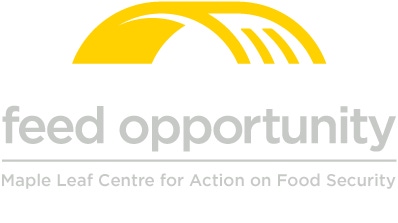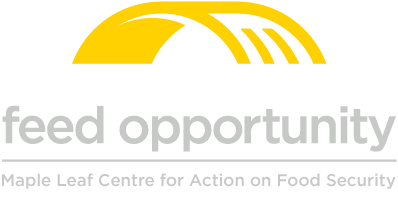Company to invest more than $10 million over five years to support advocacy, innovation and learning.

Maple Leaf Foods announced this week a long-term commitment to advance sustainable food security through the launch of the Maple Leaf Centre for Action on Food Security (the Centre), a nonprofit organization. The company expects to invest more than $10 million over the next five years to support the Centre's activities and will also make product donations exceeding $1.5 million annually.
Along with the Maple Leaf commitment, president and chief executive officer Michael McCain is making a personal pledge of $2.5 million to support an endowment fund that will further advance the Centre's work on food security and commitment to act on this pressing social issue.

The Centre has three areas of focus: advocacy, innovation and learning. The Centre and Maple Leaf will support, engage and advocate for important policies that advance sustainable food security. The Innovation Fund will invest in innovative food security initiatives based on dignity, empowerment and skill building that can potentially be scaled to increase their impact. The Centre will share learning from its work and support networks, collaboration and research in the food security sector that builds further understanding of the issues and approaches and enables knowledge transfer.
It is estimated that one in six children and 4 million Canadians face food insecurity, lacking stable access to affordable, nutritious and culturally appropriate food.
“In a country of such wealth and abundance, it is a national shame that one out of every six children and 4 million people in Canada face food insecurity,” McCain, honorary chairman of the Centre, said.
“The Centre is the culmination of several years of stakeholder engagement to understand this complex issue and where Maple Leaf should direct our resources — people, products and financial — to make the greatest difference. It reflects a significant, sustained commitment to lend our voice, to advocate for change and to invest in innovation that results in demonstrable improvements,” McCain added.
Despite the bold and innovative work of many striving to reduce food insecurity, the company said levels of food security in Canada have persisted for the past decade and have substantially worsened in regions of country such as Nunavut, where almost half of households are food insecure.
Results from a recent national survey showed that more than 60% of Canadians do not understand the meaning of “food insecurity,” and less than one in five are aware of the extent of the issue in Canada.
Food insecurity affects 12.5% of Canada's population and is a pervasive and pressing national issue. One in eight households face food insecurity, and the prevalence is far greater in northern communities and among disadvantaged populations.
The goal of the Centre is to work collaboratively to reduce food insecurity in Canada 50% by 2030. While the reasons for food insecurity are complex, including geography, health and mobility, the single greatest factor is income, with the majority of the 4 million food-insecure Canadians concentrated in the lowest income groups and the most vulnerable in society.
Regardless of the underlying causes, the outcome is devastating, Maple Leaf noted. Food insecurity is associated with a higher prevalence of chronic diseases, higher health care costs, mental health effects, increased isolation and lower academic performance. Health care costs are estimated to be 121% higher among people facing severe food insecurity.
Critical advances will include the federal government's commitment to develop a national food strategy that encompasses food security. Innovation and community-based solutions also play an important role. This chronic social issue needs to be tackled with heightened urgency and recognition of the intersection of poverty, nutrition, culture, community and individual empowerment to improve food security, the company said.
“The Centre will support the extraordinary work of many Canadians who are bringing innovation, research and community engagement to advancing progress and social justice,” said Lynda Kuhn, senior vice president of sustainability and public affairs at Maple Leaf and chair of the Centre. “We are passionate about breaking the silence and stigma associated with food insecurity, advancing sustainable solutions and advocating for important public policy changes.”
In 2016, the Centre is supporting the following community-based projects through the Innovation Fund: McQuesten Urban Farm in Hamilton, Greater Vancouver Food Bank — Community Food Hubs and FoodShare to support the implementation and evaluation of Good Food Markets in Toronto, Ont.
To increase public awareness of the issue of food insecurity in Canada, the Centre has launched a consumer social media awareness campaign titled “4,000,000 Canadians.” The campaign features a short video, accessible on the Centre's website and through social media platforms, including Facebook.com/FeedOpportunity, Twitter.com/FeedOpportunity and YouTube.
To learn more about the initiative, visit www.FeedOpportunity.com.
About the Author(s)
You May Also Like

.png?width=300&auto=webp&quality=80&disable=upscale)

